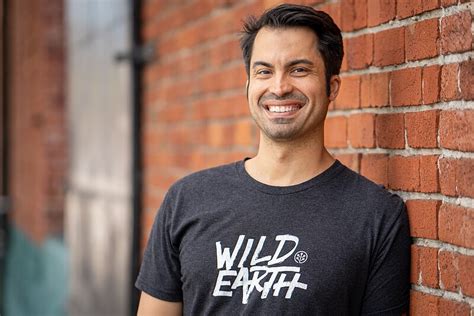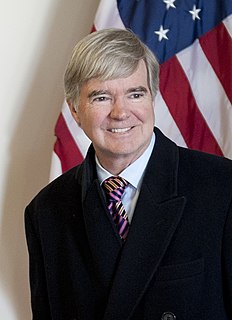A Quote by Julia Hartz
My goal is to create one of the greatest companies that's ever existed, and that has everything to do with the people, the culture, and what our core values are versus what we build or how we're perceived out in the market.
Related Quotes
If God had perceived that our greatest need was economic, he would have sent an economist. If he had perceived that our greatest need was entertainment, he would have sent us a comedian or an artist. If God had perceived that our greatest need was political stability, he would have sent us a politician. If he had perceived that our greatest need was health, he would have sent us a doctor. But he perceived that our greatest need involved our sin, our alienation from him, our profound rebellion, our death; and he sent us a Savior.
My teachers are saying that this is one of our greatest lessons that we have to remember if we're ever going to get out of this problem that we're in, not only with war, but socially and environmentally and everything that is being destroyed. We need to begin to live and create within our hearts rather than live and create from our minds.
Preserve the core, and let the rest flux. In their wonderful bestseller Built to Last, authors James Collins and Jerry Porras make a convincing argument that long-lived companies are able to thrive 50 years or more by retaining a very small heart of unchanging values, and then stimulating progress in everything else. At times "everything" includes changing the business the company operates in, migrating, say, from mining to insurance. Outside the core of values, nothing should be exempt from flux. Nothing.
[Our goal] is to help revive America's traditional values: faith, family, neighborhood, work and freedom. Government has no business enforcing these values but neither must it seek, as it did in the recent past, to suppress or replace them. That only robbed us of our tiller and set us adrift. Helping to restore these values will bring new strength, direction and dignity to our lives and to the life of our nation. It's on these values that we'll best build our future.
There has been an intention since day one that it's as important to us that we build profits as much as we build a wonderful culture and a lasting legacy of a great company. We've created this inclusive environment that's very thoughtful in terms of how we can create allyship, how we create mentorship, and what kind of voices are heard.
You can build the most important companies in history with a very simple to describe concept. You can market products in less than 50 characters. There is no reason why you can't build your company the same way. So force yourself to simplify every initiative, every product, every marketing, everything you do. Basically take out that red and start eliminating stuff.
I don't think you can create culture and develop core values during great times. I think it's when the company faces adversity of extraordinary proportions, when there's no reason for the company to survive, when you're looking at incredible odds - that's when culture is developed, character is developed.
We are at a point in our nation's history when the right leadership is needed more than ever. Hillary has spent her life advocating for poor and working class families. Hillary will help build an economy for tomorrow and beyond; strengthen America's families; defend our country and its core values; and revitalize our democracy.
A free culture supports and protects creators and innovators. It does this directly by granting intellectual property rights. But it does so indirectly by limiting the reach of those rights, to guarantee that follow-on creators and innovators remain as free as possible from the control of the past. A free culture is not a culture without property, just as a free market is not a market in which everything is free. The opposite of a free culture is a "permission culture" -- a culture in which creators get to create only with the permission of the powerful, or of creators from the past.


































